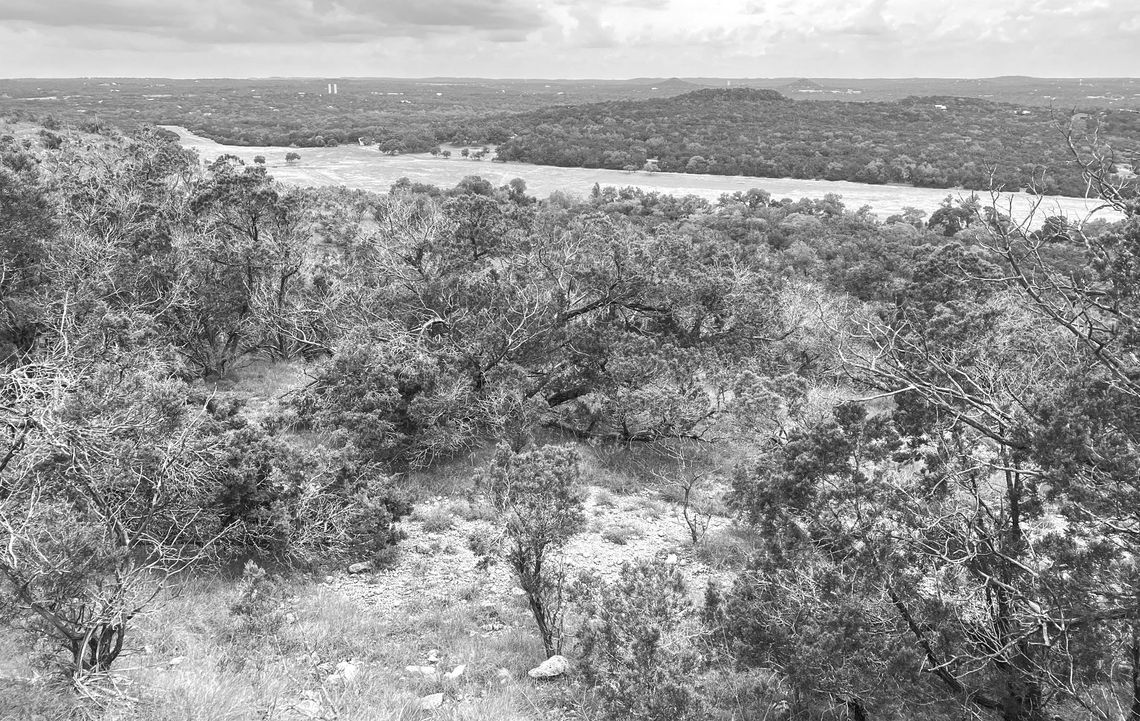A coalition of 27 regional nonprofit partners, led by the Hill Country Conservancy, has secured $23.2 million in federal funding — the largest single federal award for conservation easement funding in the Texas Hill Country — and set a goal of preserving 7,500 acres, primarily in rural areas.
Known as the Hill Country Headwaters Conservation Initiative, the coalition will leverage the expertise and local relationships of all 27 partners to engage landowners in significant portions of the Colorado, Guadalupe, San Gabriel, Llano, and Lampasas River watersheds. The coalition will screen and rank potential properties, prioritizing land with sensitive water recharge features, such as caves and sinkholes, that enable unfiltered drainage into the region’s aquifers. Properties home to unique and threatened wildlife habitats will also receive priority, along with historically underserved producers.
“The rapid growth and development throughout the Texas Hill Country has created an urgent need for land conservation that no single organization can tackle alone,” said Hill Country Conservancy CEO Kathy Miller. “This funding allows our coalition to be more strategic and proactive in protecting high-impact properties that deliver the most value in safeguarding endangered species, iconic spring-fed streams and pools, and essential aquifer systems supplying water to communities and farmers from Central Texas to the Gulf of Mexico.”
The funding was awarded through the U.S. Department of Agriculture’s Regional Conservation Partnership Program. Urgent Need to Preserve Rural Land The Hill Country’s population has grown nearly 50% over the last 20 years, with twothirds of that growth occurring in unincorporated areas where counties have limited authority to regulate land use and minimal funds for preserving open space. Land prices have increased six to eightfold during this period, creating financial pressure on agricultural landowners to sell and driving up costs for conservation groups and public entities seeking to acquire easements and land.
Today, approximately 90% of the Hill Country’s 11 million acres is agricultural, but only 550,000 acres are protected from development through public ownership and private conservation easements. The region’s population is projected to grow another 45% over the next 30 years, further accelerating development.
Celebrating its 25th anniversary, Hill Country Conservancy is a Texas leader in bringing together municipalities, counties, the USDA, and private landowners to secure mutually beneficial conservation easements on private lands. Though it has historically focused its efforts in and around Travis and Hays counties, where its work began, the organization has recently expanded its reach across the 18-county Hill Country to address growing development pressure.
“The Hill Country Conservancy was founded to end conflicts among environmentalists, landowners, and developers and instead foster collaboration to preserve land critical to protecting wildlife habitats and water resources,” Miller said. “This cooperative approach has been effective in preserving thousands of sensitive acres over the past 25 years, but the need to protect the Hill Country’s unique ecology has only become more urgent due to rapid growth and climate change.”
Founded in 1999, the Hill Country Conservancy works with landowners and conservation groups to protect essential watersheds, recharge areas, wildlife habitats, and agricultural lands in the Hill Country. Known for facilitating complex conservation projects with various partners, HCC currently holds 27 conservation easements totaling over 15,500 acres and has collaborated with partners to conserve thousands more acres within the Barton Springs Edwards Aquifer region and other basins.
The Hill Country Headwaters Conservation Initiative was launched in 2018 by Hill Country Conservancy and 18 partner organizations to enhance and protect natural resources through partnerships with conservation-minded landowners. Today, the initiative has grown to include 27 partners.
For more information about the Hill Country Conservancy, visit hillcountryconservancy. org.
.png)











